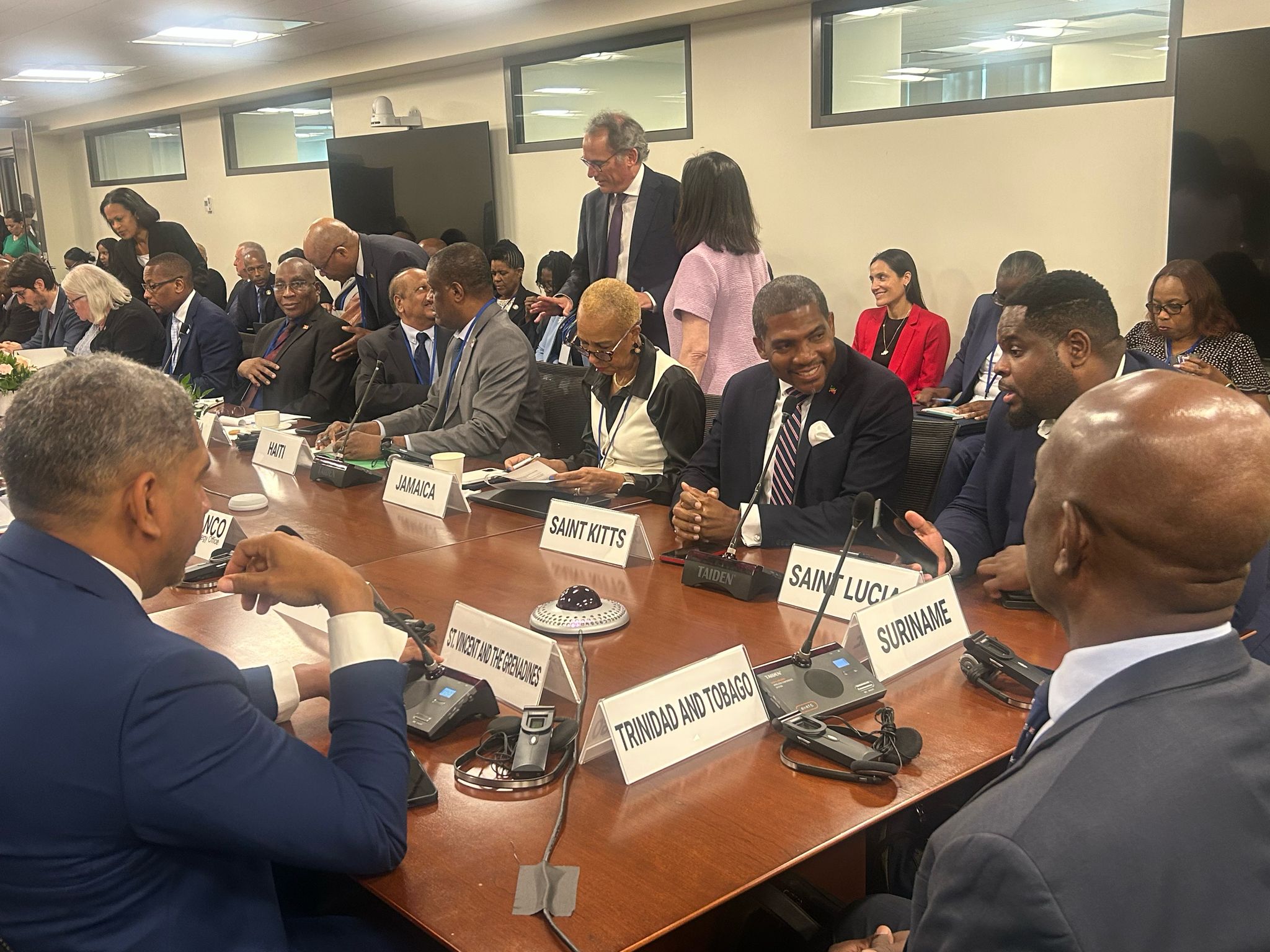Prime Minister Drew Champions Inclusive and Equitable Representation in World Bank Development Discussions.
The 2025 World Bank Spring Meetings in Washington, D.C. provided a crucial platform for Prime Minister Hon. Dr. Terrance Drew of St. Kitts and Nevis to engage with global leaders and advocate for the unique concerns of Small Island Developing States (SIDS). Accompanied by key financial and government officials, Prime Minister Drew immersed himself in a series of high-level discussions centered around economic vulnerability, resilience-building, and attracting private sector investment in the Caribbean region. His participation underscores the government’s commitment to leveraging international partnerships and regional collaboration to advance St. Kitts and Nevis’s Sustainable Island State Agenda. The meetings also served as a stark reminder of the challenges SIDS face in the wake of the pandemic and the escalating threat of climate change.
One of the key engagements during the Spring Meetings was the Caribbean Ministerial Meeting hosted by the World Bank’s Managing Director for Operations. This gathering provided a focused forum for Caribbean leaders and finance ministers to address critical issues impacting the region’s economic landscape. Prime Minister Drew emphasized the vital importance of St. Kitts and Nevis’s presence at such global forums, stating that decisions made at these meetings have a direct impact on the nation, regardless of its participation. He stressed that being “at the table” allows St. Kitts and Nevis to exert influence and ensure its voice is heard when shaping policies that affect its future. Absence, he argued, risks the nation becoming “on the menu,” subject to decisions made without its input.
A central theme of Prime Minister Drew’s advocacy was the need for international institutions like the World Bank to adopt a more nuanced understanding of the specific vulnerabilities faced by SIDS. He challenged the conventional reliance on GDP per capita as the sole measure of a nation’s economic health, arguing that it fails to capture the complex realities of small island states. He reiterated the vulnerability of St. Kitts and Nevis’s economy due to its small size and susceptibility to external shocks like climate change, emphasizing that these factors necessitate a more tailored approach to development assistance and financial support. His call was for greater inclusion and consideration of SIDS-specific circumstances within the World Bank’s operational framework.
Prime Minister Drew also highlighted the importance of regional unity and a collective Caribbean voice on the global stage. He argued that a unified front strengthens the region’s negotiating power and increases the likelihood of achieving shared objectives. By working together, Caribbean nations can amplify their influence on critical issues such as climate change adaptation, economic resilience, job creation, private sector investment, and overall economic transformation. This collaborative approach, he believes, will lead to greater success for each individual nation in addressing the common challenges they face.
The 2025 Spring Meetings arrived at a critical juncture for the Caribbean region as it navigates the complexities of post-pandemic recovery and the escalating impacts of climate change. The meetings provided a platform for Caribbean leaders to engage with international financial institutions and advocate for policies that support sustainable development and resilience in the face of these challenges. Prime Minister Drew’s active participation and advocacy reflect the St. Kitts and Nevis government’s commitment to international engagement as a means of furthering its national development agenda.
The discussions and engagements at the Spring Meetings reinforced the interconnectedness of global and regional economies and the importance of multilateral collaboration in addressing shared challenges. Prime Minister Drew’s presence and strong advocacy underscore the determination of St. Kitts and Nevis to actively participate in shaping the global development agenda and securing a resilient and sustainable future for its citizens. The emphasis on regional solidarity further reinforces the belief that collective action is crucial for amplifying the voices of SIDS and achieving shared goals in the face of global economic and environmental uncertainties.
Share this content:












Post Comment